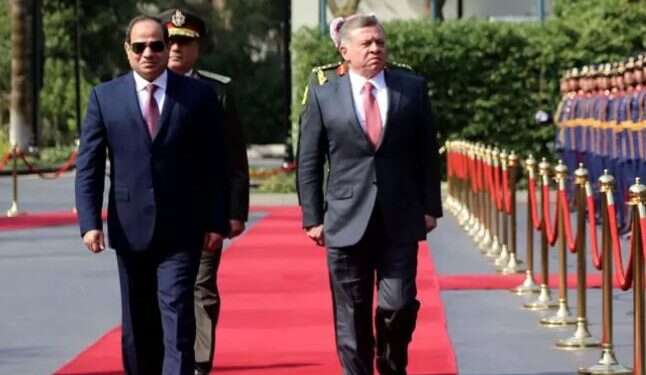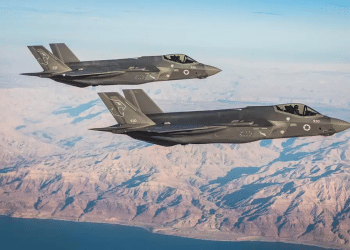Hours after Israel admitted it had destroyed the Syrian nuclear reactor in 2007, officials in Syria and other Arab countries were staying mum Wednesday afternoon.
Arab news outlets sufficed with laconic reports and quoted the statement issued by the IDF Spokesperson's Unit.
However, Israel's decision to reveal its responsibility for the strike took many senior political pundits in the Arab world by complete surprise, particularly in light of Israel's years-long policy of ambiguity on matters of intelligence and military operations.
"The Arab silence is understandable, because any statement on the matter will harm the interests of the Arab leaders," a senior Egyptian official said.
The official stressed that Egyptian President Abdel Fattah el-Sissi, who is expected to be elected to another term in office later this month, has no interest in injecting the issue of the Israeli strike in Syria into the media discourse in his country, and has even instructed senior officials in his government to refrain from commenting on the matter altogether.
"Following reports in various news outlets that Israel has attacked Islamic State strongholds in Sinai in recent months with Egyptian approval and even helps the Egyptian army in its campaign to eradicate Islamic terror in Sinai, Sissi is interested in playing down such reports about security cooperation with Israel as much as possible," the Egyptian official said.
"There is no point speaking of the matter of the Israeli strike on the Syrian reactor on the eve of elections in Egypt."
However, the official attested to the shock in Cairo in 2007 upon learning what Israel had targeted in Syria.
"You can certainly say that then-President Hosni Mubarak and his government didn't shed any tears over the destruction of the Syrian reactor. Looking back, one can understand the Egyptian concern over the possibility of Syria becoming the first Arab country with a nuclear weapon," he said.
Other senior Arab officials who spoke to Israel Hayom speculated that the timing of the revelation is linked to the "deal of the century" being prepared by the Trump administration for a peace deal between Israel and moderate Arab countries, and the Palestinians' objections to it.
A senior Jordanian official told Israel Hayom: "Israel, by making this public, is also highlighting its concern for the interests of moderate Arab states – preventing a fragile country such as Syria from acquiring nuclear weapons, and the timing of the reactor attack before it became operational to avoid the possibility of polluting the area with radiation."
The Jordanian official said Saudi Arabia has probably stayed silent because its strongest figure, Crown Prince Mohammed Bin Salman, is currently visiting the United States. During his meetings with U.S. President Donald Trump and other American lawmakers, the prince is expected to discuss Saudi Arabia's desire to build nuclear reactors for civilian purposes.
The Jordanian official said that during the crown prince's recent visit to London, he warned the world about Iran's nuclear program, saying it threatens the stability of the entire Middle East.
"If Iran has a nuclear bomb, Saudi Arabia will also get one for the purpose of self-defense and the Middle East will enter an arms race," the prince said.
Meanwhile, Arab media hedged that Israel's investigation into the Syrian reactor began in 2004, several weeks after Libyan dictator Moammar Gadhafi announced that he was freezing his country's nuclear program.
Some media outlets said Gadhafi's announcement caused Israel's intelligence services to suspect that another Arab country was developing a nuclear weapon, aided by the man behind the Pakistani nuclear bomb, Dr. Abdel Qadeer Khan.
At the time, Khan, a highly respected nuclear expert was traveling between various Arab countries, including Syria.
Together with Israeli intelligence suggesting that the Assad regime was maintaining close ties with North Korea, this prompted Israeli officials to investigate, both independently and via foreign intelligence agencies, whether Syria and North Korea were exchanging information for the development of a nuclear program. The answer to this remains uncertain.
Arab media reports also stated that Israel did not wait long to destroy the nuclear reactor once its existence was ascertained, as it discovered the facility had military-grade operations.
The concern was that bombing the reactor once it became operational would result in mass casualties as well as long-term radioactive contamination to the soil and the nearby Euphrates River. This would have resulted in major unrest in the Arab world, providing proof for what many Arabs claim is a "Zionist scheme to poison the Arabs' water supply."




